Informationen zur Zeitschrift
Startseite » Programm » IJREE 2-2018 | A Discussion about Concepts and Terms in the Field of Extended Education
IJREE 2-2018 | A Discussion about Concepts and Terms in the Field of Extended Education
Erscheinungsdatum : 10.05.2019
0,00 € - 35,00 €
Inhalt
IJREE – International Journal for Research on Extended Education
2-2018: A Discussion about Concepts and Terms in the Field of Extended Education
Special Section
Marianne Schuepbach: Introduction: A Discussion about Concepts and Terms in the Field of Extended Education
Anna Klerfelt / Anna-Lena Ljusberg: Eliciting Concepts in the Field of Extended Education – A Swedish Provoke
Marianne Schuepbach: Useful terms in English for the field of extended education and a characterization of the field from a Swiss perspective
Ludwig Stecher: Extended Education – Some Considerations on a Growing Research Field
Sang Hoon Bae: Concepts, Models, and Research of Extended Education
Gil G. Noam / Bailey B. Triggs: Expanded learning: A thought piece about terminology, typology, and transformation
General Contributions
Isa Steinmann / Rolf Strietholt: Student achievement and educational inequality in half- and all-day schools: Evidence from Germany
Developments in the Field of Extended Education
Fuyuko Kanefuji: Japanese Policy for After-School Programs: Education through School-Community Collaborations
Hanna Koskimies / Iina Berden / Emma Harju: New art and culture ‒ inspired pedagogy to Finnish schools. A child-centred approach to organising extracurricular activities
Myung Suk Woo: Extended Education in Korea from the Perspective of the Economics of Education
Download of Table of Contents / Inhaltsverzeichnis herunterladen
Download of single articles (Open Access/fee-based): ijree.budrich-journals.com
You can register here for the IJREE alert.
Einzelbeitrag-Download (Open Access/Gebühr): ijree.budrich-journals.com
Sie können sich hier für den IJREE-Alert anmelden.
Zusätzliche Information
| Verlag | |
|---|---|
| ISSN | 2196-3673 |
| eISSN | 2196-7423 |
| Jahrgang | 6. Jahrgang 2018 |
| Ausgabe | 2 |
| Erscheinungsdatum | 10.05.2019 |
| Umfang | 108 |
| Sprache | Englisch |
| Format | 17 x 24 cm |
| DOI | |
| Open Access-Lizenz | |
| Homepage |
Autor*innen
Schlagwörterafterschool, all-day school, economics of education, education, educational inequality, eliciting concepts, extended education, extracurricular activities, family socio reproduction strategies, Finland, Germany, Japan, Korea, learning opportunities, Learning society, mathematics achievement, pedagogy, reading achievement, school-community collaboration, social inequality, social-emotional skills, Sweden, Switzerland, youth development
Abstracts
Eliciting Concepts in the Field of Extended Education – A Swedish Provoke (Anna Klerfelt, Anna-Lena Ljusberg)
The aim of this article is to contribute to the discussion concerning the concepts used in the field of extended education by scrutinising different concepts that can contribute to research and guard the specific educational attitude of extended education as viewed from a Swedish perspective. The discussion will be based on a review of concepts used in both national and international research, as well as those formulated in Swedish policy documents and traditionally used in Swedish schoolage educare activity. Defining extended education as a social practice that aims at meaning making based on experiences from everyday life will be an important theoretical starting point to which the discussed concepts will be related. The significance of taking a point of departure in children’s perspectives is central in the article. Finally, some newly created concepts will be suggested as significant for the development of extended education. Keywords: extended education, Swedish concepts, theories, values
» Download Single Contribution Free of Charge (Budrich Journals) / Einzelbeitrag kostenlos herunterladen (Budrich Journals)
Useful terms in English for the field of extended education and a characterization of the field from a Swiss perspective (Marianne Schuepbach)
In the last 20 years, interest in the field of extended education has been growing worldwide. Countries in the East and the West have been investing in developing systems to support student learning after traditional school hours. In this contribution, we first clarify concepts and terms currently used in Switzerland and then, from an international point of view, focus on possible useful terms in this new field in English. In the third part, we attempt to outline the field of extended education by means of basic points, illustrated using Switzerland as an example. Keywords: Extended education, concept, term, characterization, Switzerland
» Download Single Contribution Free of Charge (Budrich Journals) / Einzelbeitrag kostenlos herunterladen (Budrich Journals)
Extended Education – Some Considerations on a Growing Research Field (Ludwig Stecher)
In most modern countries, much learning in childhood and adolescence takes place outside of regular school hours. That holds for community-based programs – like afterschool programs – as well as for private offerings – like private tutoring. In the international research literature, this field of learning opportunity is called extended education. This article attempts to define the term, extended education, and to describe in some detail the common features of extended education programs and activities, focusing among other things on questions of methods, outcomes and professionals working in this field. The article addresses additionally the question whether learning in the field of extended education decreases social inequality, or, on the contrary, widens the social gap. The most important conclusion is that many relevant questions regarding social inequality and the effectiveness of extended education are still empirically open to research. Keywords: Extended education, learning society, learning opportunities, social inequality, family socio-reproduction strategies
» Download Single Contribution Free of Charge (Budrich Journals) / Einzelbeitrag kostenlos herunterladen (Budrich Journals)
Concepts, Models, and Research of Extended Education (Sang Hoon Bae)
Extended education flourishes all over the world. Within different cultures and sociopolitical backgrounds, it takes different terms, forms, and developments across nations. Without identifying the common concepts of extended education, we may not expect further developments in extended education research. This study examined the terms that are used to describe extended education in each country. Research focus was given to the kind of connotations the terms contain – in what ways the terms are perceived. Given that extended education in each nation has its own heritage and historicity, the study also suggested four extended education development models. The four models mainly concern the origin of extended education – for what reasons a certain type of extended education was introduced and developed as a legitimate educational arrangement. Finally, this current study attempted to explore the common features and concepts of extended education as an area of education research and academic discipline. Keywords: Extended education, Terms, Development Model, Concepts, Typology
» Download Single Contribution Free of Charge (Budrich Journals) / Einzelbeitrag kostenlos herunterladen (Budrich Journals)
Expanded learning: A thought piece about terminology, typology, and transformation (Gil G. Noam, Bailey B. Triggs)
What is it about afterschool that gives it so much potential to powerfully influence educational best practices around the world? This paper will explore what truly defines “afterschool” beyond the time- and location-based pedagogy of the term and will make the case for the use of “expanded learning” or “expanded opportunities” as the terms that most clearly describe this critical time of youth learning and development. This paper will explore the cultural and bureaucratic differences countries have that influence how young people spend their time and what those differences say about a country’s views on child development and its aspirations for its youth. Beyond an exploration of cultural differences, this paper will also discuss the trends that are influencing our international efforts to shift the view of expanded learning programs beyond a safe place to keep children occupied while their parents work, toward a fundamental space for child development and educational innovation. Keywords: Espanded learning, afterschool, youth development, social-amotional skills
» Download Single Contribution Free of Charge (Budrich Journals) / Einzelbeitrag kostenlos herunterladen (Budrich Journals)
Student achievement and educational inequality in half- and all-day schools: Evidence from Germany (Isa Steinmann, Rolf Strietholt)
Several countries have expanded extended education in recent years. In Germany, the most substantial educational reform is the ongoing transformation of the traditional half-day school system into an all-day school system. Among politicians, expectations are high that all-day schools will promote student achievement and reduce social achievement inequalities. To test these assumptions, we used representative data from the National Educational Panel Study (NEPS) to estimate two-level latent growth models for achievement in grades 5, 7, and 9. The analyses revealed initial achievement differences but no differences in achievement growth or changes in inequality throughout secondary school. This suggests that selection mechanisms are at work but that half- and all-day schools are not differentially effective. We discuss these findings in light of the international debate on the quality of extended education. Keywords: extended education, all-day school, mathematics achievement, reading achievement, educational inequality
» Download Single Contribution Free of Charge (Budrich Journals) / Einzelbeitrag kostenlos herunterladen (Budrich Journals)
Inhalt
Inhalt
IJREE – International Journal for Research on Extended Education
2-2018: A Discussion about Concepts and Terms in the Field of Extended Education
Special Section
Marianne Schuepbach: Introduction: A Discussion about Concepts and Terms in the Field of Extended Education
Anna Klerfelt / Anna-Lena Ljusberg: Eliciting Concepts in the Field of Extended Education – A Swedish Provoke
Marianne Schuepbach: Useful terms in English for the field of extended education and a characterization of the field from a Swiss perspective
Ludwig Stecher: Extended Education – Some Considerations on a Growing Research Field
Sang Hoon Bae: Concepts, Models, and Research of Extended Education
Gil G. Noam / Bailey B. Triggs: Expanded learning: A thought piece about terminology, typology, and transformation
General Contributions
Isa Steinmann / Rolf Strietholt: Student achievement and educational inequality in half- and all-day schools: Evidence from Germany
Developments in the Field of Extended Education
Fuyuko Kanefuji: Japanese Policy for After-School Programs: Education through School-Community Collaborations
Hanna Koskimies / Iina Berden / Emma Harju: New art and culture ‒ inspired pedagogy to Finnish schools. A child-centred approach to organising extracurricular activities
Myung Suk Woo: Extended Education in Korea from the Perspective of the Economics of Education
Download of Table of Contents / Inhaltsverzeichnis herunterladen
Download of single articles (Open Access/fee-based): ijree.budrich-journals.com
You can register here for the IJREE alert.
Einzelbeitrag-Download (Open Access/Gebühr): ijree.budrich-journals.com
Sie können sich hier für den IJREE-Alert anmelden.
Bibliografie
Zusätzliche Information
| Verlag | |
|---|---|
| ISSN | 2196-3673 |
| eISSN | 2196-7423 |
| Jahrgang | 6. Jahrgang 2018 |
| Ausgabe | 2 |
| Erscheinungsdatum | 10.05.2019 |
| Umfang | 108 |
| Sprache | Englisch |
| Format | 17 x 24 cm |
| DOI | |
| Open Access-Lizenz | |
| Homepage |
Produktsicherheit
Bewertungen (0)
Bewertungen
Es gibt noch keine Bewertungen.
Autor*innen
Autor*innen
Schlagwörter
Schlagwörterafterschool, all-day school, economics of education, education, educational inequality, eliciting concepts, extended education, extracurricular activities, family socio reproduction strategies, Finland, Germany, Japan, Korea, learning opportunities, Learning society, mathematics achievement, pedagogy, reading achievement, school-community collaboration, social inequality, social-emotional skills, Sweden, Switzerland, youth development
Abstracts
Abstracts
Eliciting Concepts in the Field of Extended Education – A Swedish Provoke (Anna Klerfelt, Anna-Lena Ljusberg)
The aim of this article is to contribute to the discussion concerning the concepts used in the field of extended education by scrutinising different concepts that can contribute to research and guard the specific educational attitude of extended education as viewed from a Swedish perspective. The discussion will be based on a review of concepts used in both national and international research, as well as those formulated in Swedish policy documents and traditionally used in Swedish schoolage educare activity. Defining extended education as a social practice that aims at meaning making based on experiences from everyday life will be an important theoretical starting point to which the discussed concepts will be related. The significance of taking a point of departure in children’s perspectives is central in the article. Finally, some newly created concepts will be suggested as significant for the development of extended education. Keywords: extended education, Swedish concepts, theories, values
» Download Single Contribution Free of Charge (Budrich Journals) / Einzelbeitrag kostenlos herunterladen (Budrich Journals)
Useful terms in English for the field of extended education and a characterization of the field from a Swiss perspective (Marianne Schuepbach)
In the last 20 years, interest in the field of extended education has been growing worldwide. Countries in the East and the West have been investing in developing systems to support student learning after traditional school hours. In this contribution, we first clarify concepts and terms currently used in Switzerland and then, from an international point of view, focus on possible useful terms in this new field in English. In the third part, we attempt to outline the field of extended education by means of basic points, illustrated using Switzerland as an example. Keywords: Extended education, concept, term, characterization, Switzerland
» Download Single Contribution Free of Charge (Budrich Journals) / Einzelbeitrag kostenlos herunterladen (Budrich Journals)
Extended Education – Some Considerations on a Growing Research Field (Ludwig Stecher)
In most modern countries, much learning in childhood and adolescence takes place outside of regular school hours. That holds for community-based programs – like afterschool programs – as well as for private offerings – like private tutoring. In the international research literature, this field of learning opportunity is called extended education. This article attempts to define the term, extended education, and to describe in some detail the common features of extended education programs and activities, focusing among other things on questions of methods, outcomes and professionals working in this field. The article addresses additionally the question whether learning in the field of extended education decreases social inequality, or, on the contrary, widens the social gap. The most important conclusion is that many relevant questions regarding social inequality and the effectiveness of extended education are still empirically open to research. Keywords: Extended education, learning society, learning opportunities, social inequality, family socio-reproduction strategies
» Download Single Contribution Free of Charge (Budrich Journals) / Einzelbeitrag kostenlos herunterladen (Budrich Journals)
Concepts, Models, and Research of Extended Education (Sang Hoon Bae)
Extended education flourishes all over the world. Within different cultures and sociopolitical backgrounds, it takes different terms, forms, and developments across nations. Without identifying the common concepts of extended education, we may not expect further developments in extended education research. This study examined the terms that are used to describe extended education in each country. Research focus was given to the kind of connotations the terms contain – in what ways the terms are perceived. Given that extended education in each nation has its own heritage and historicity, the study also suggested four extended education development models. The four models mainly concern the origin of extended education – for what reasons a certain type of extended education was introduced and developed as a legitimate educational arrangement. Finally, this current study attempted to explore the common features and concepts of extended education as an area of education research and academic discipline. Keywords: Extended education, Terms, Development Model, Concepts, Typology
» Download Single Contribution Free of Charge (Budrich Journals) / Einzelbeitrag kostenlos herunterladen (Budrich Journals)
Expanded learning: A thought piece about terminology, typology, and transformation (Gil G. Noam, Bailey B. Triggs)
What is it about afterschool that gives it so much potential to powerfully influence educational best practices around the world? This paper will explore what truly defines “afterschool” beyond the time- and location-based pedagogy of the term and will make the case for the use of “expanded learning” or “expanded opportunities” as the terms that most clearly describe this critical time of youth learning and development. This paper will explore the cultural and bureaucratic differences countries have that influence how young people spend their time and what those differences say about a country’s views on child development and its aspirations for its youth. Beyond an exploration of cultural differences, this paper will also discuss the trends that are influencing our international efforts to shift the view of expanded learning programs beyond a safe place to keep children occupied while their parents work, toward a fundamental space for child development and educational innovation. Keywords: Espanded learning, afterschool, youth development, social-amotional skills
» Download Single Contribution Free of Charge (Budrich Journals) / Einzelbeitrag kostenlos herunterladen (Budrich Journals)
Student achievement and educational inequality in half- and all-day schools: Evidence from Germany (Isa Steinmann, Rolf Strietholt)
Several countries have expanded extended education in recent years. In Germany, the most substantial educational reform is the ongoing transformation of the traditional half-day school system into an all-day school system. Among politicians, expectations are high that all-day schools will promote student achievement and reduce social achievement inequalities. To test these assumptions, we used representative data from the National Educational Panel Study (NEPS) to estimate two-level latent growth models for achievement in grades 5, 7, and 9. The analyses revealed initial achievement differences but no differences in achievement growth or changes in inequality throughout secondary school. This suggests that selection mechanisms are at work but that half- and all-day schools are not differentially effective. We discuss these findings in light of the international debate on the quality of extended education. Keywords: extended education, all-day school, mathematics achievement, reading achievement, educational inequality
» Download Single Contribution Free of Charge (Budrich Journals) / Einzelbeitrag kostenlos herunterladen (Budrich Journals)




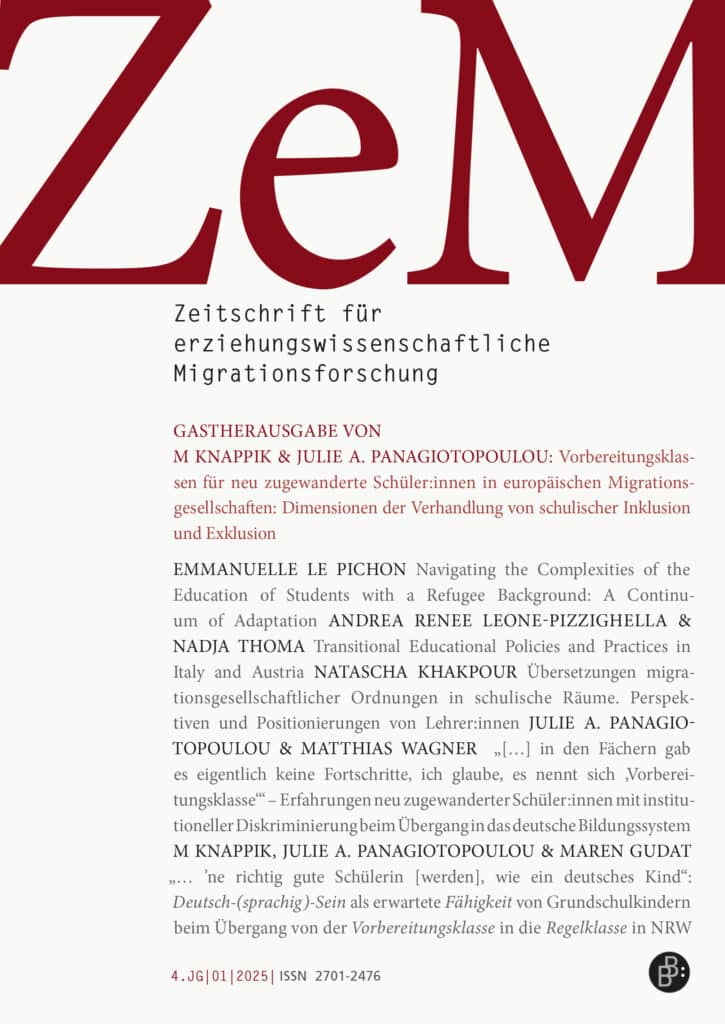
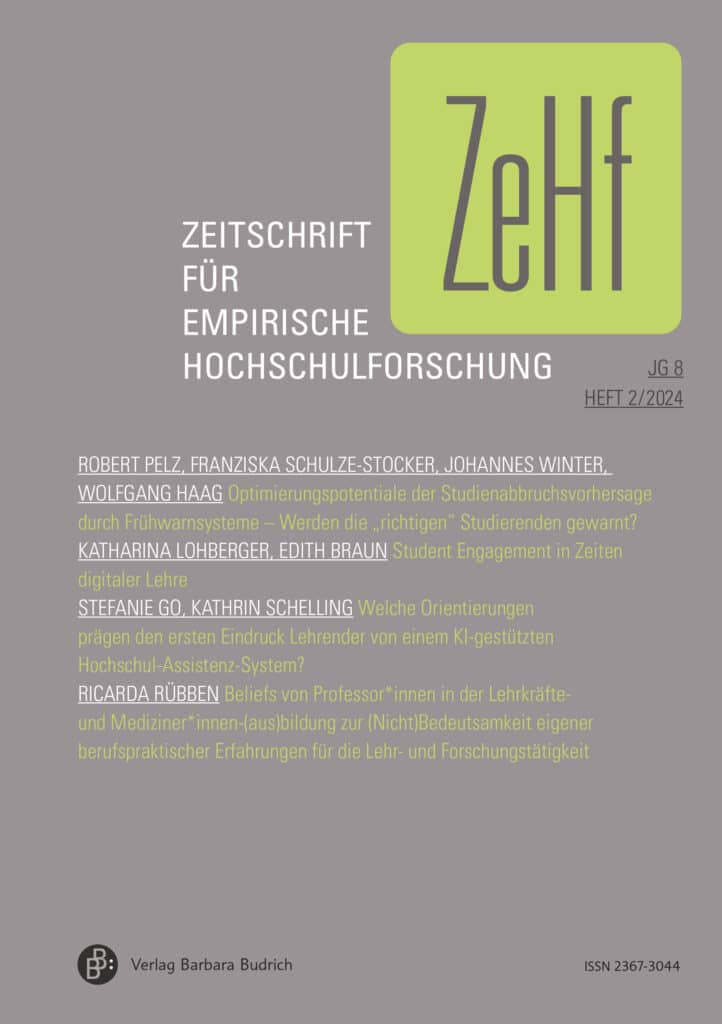
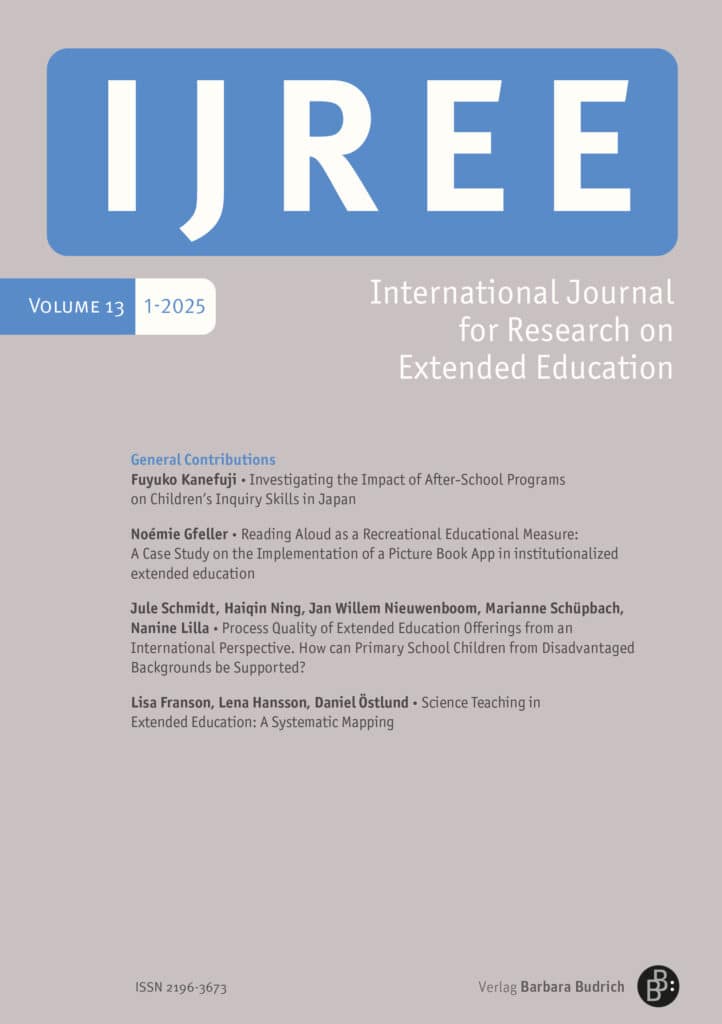
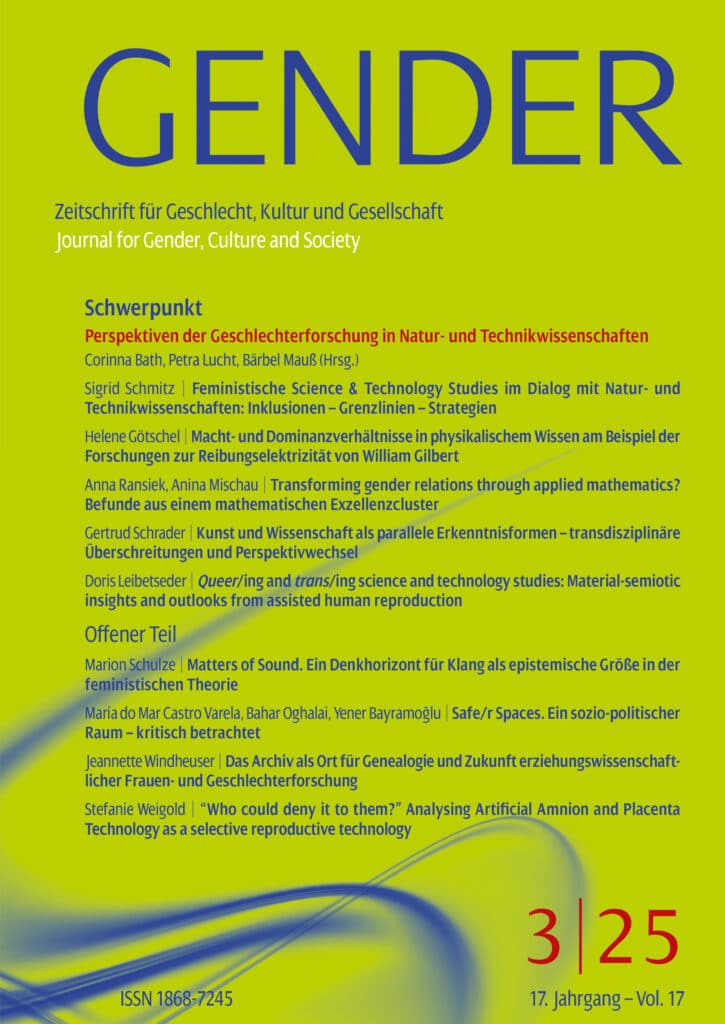
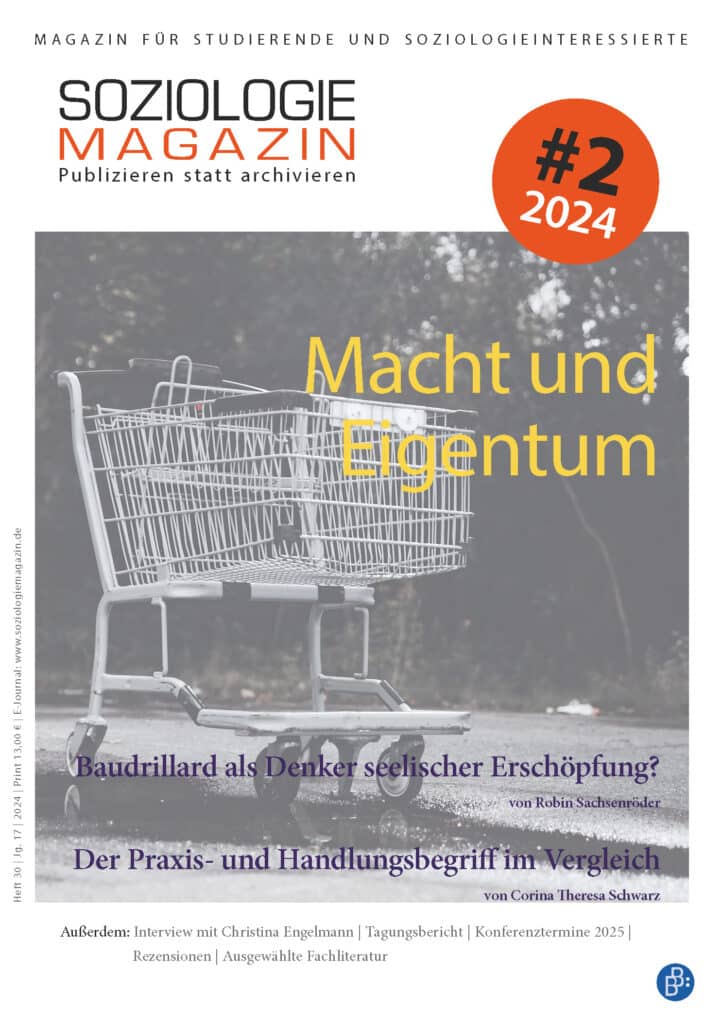

Bewertungen
Es gibt noch keine Bewertungen.